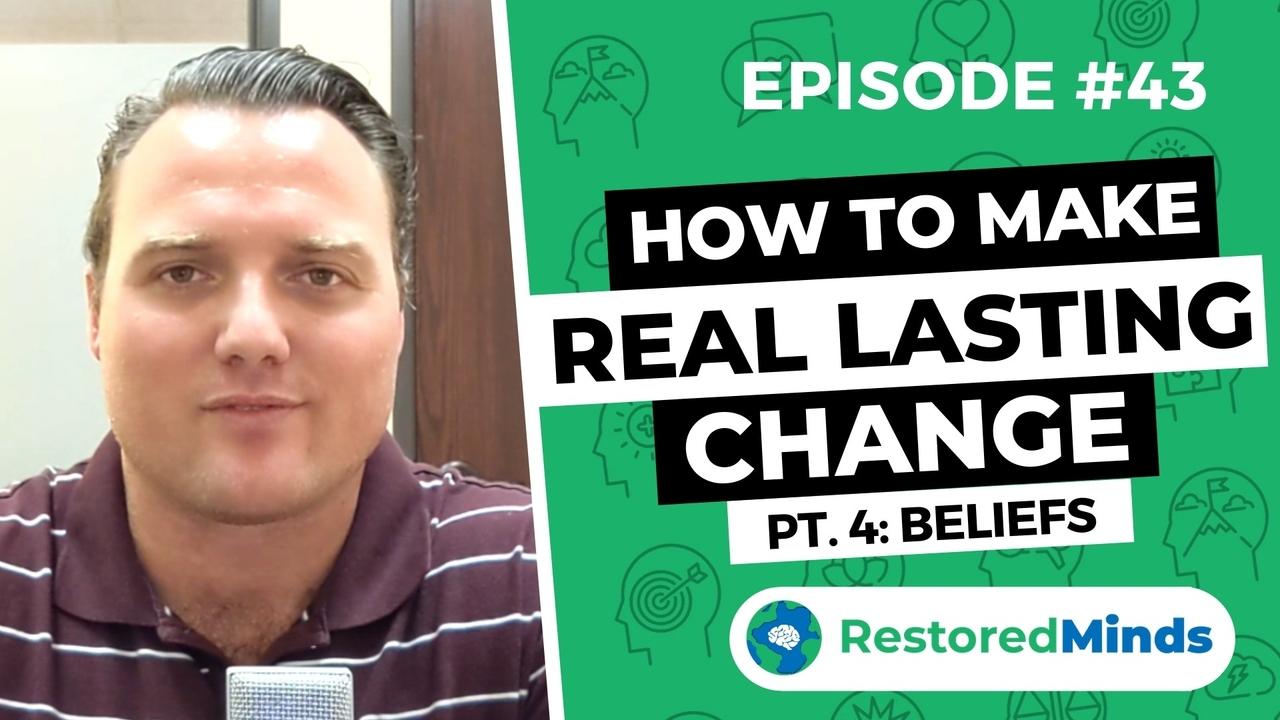How to Make Real Lasting Change - Pt.4: Beliefs
Aug 12, 2020
What Are Beliefs?
In essence, beliefs are the stories we tell ourselves. As Matt mentioned, beliefs can be understood as personal agreements or assumptions that might not be universally true for everyone. Unlike the law of gravity, which is consistently true, beliefs are subjective. For example, the idea that flying was impossible was a common belief until the invention of airplanes shattered that notion.
Why Beliefs Matter in Making Change
Before we delve deeper, let's recap our previous discussions in this series on how to make lasting change. Initially, we talked about how altering your environment alone is often ineffective. Next, we focused on behavior and skills. Today, we're emphasizing that to sustain behavioral changes, you need to underpin them with the right beliefs.
The Inspirational Story of Belief
Consider the story Matt shared about a successful entrepreneur who believed in his abilities based on an incorrect SAT score. Despite later learning he had failed the SAT, his belief in his potential drove him to achieve remarkable success. This underscores how powerful beliefs can propel you toward your goals.
Beliefs in Mental Health
Let's discuss how this applies to mental health. If you’re struggling with OCD, anxiety, or another condition, the belief that recovery is impossible can be a significant hindrance. On the contrary, embracing the belief that recovery is achievable sets the foundation for effective change. As Matt noted, beginning with the belief that recovery is possible is Step One in our Overcoming OCD and Anxiety program.
Challenging Limiting Beliefs
Beliefs also influence many other areas of life, from marriage to parenting. For instance, the belief that happiness is contingent on marriage can place an unhealthy expectation on your partner and your relationship. To start transforming these limiting beliefs, Matt suggests an exercise. Take a piece of paper and jot down what you assume to be true. This can help surface underlying beliefs you may not realize you hold.
The Quick Shift: Santa Claus Example
Belief transformation can happen quickly and decisively. Take the example of Santa Claus. As children, many of us believed in Santa. When confronted with the truth, our belief shifted swiftly, and so did our behaviors—no more letters to Santa or leaving out milk and cookies. This illustrates how new behaviors naturally follow once a belief changes.
Aligning Behavior with New Beliefs
To solidify a new belief, it's crucial to align your behaviors with it. For example, if you believe in recovery from OCD and anxiety, your actions—such as engaging in therapy and practicing mindfulness—should reflect that belief. Behavior is a clear indicator of underlying beliefs, and changing behavior reinforces new beliefs.
The Deeper Level: Identity
While beliefs are powerful, there's an even deeper level: identity. Stay tuned for next week's post, where we'll explore the relationship between identity and lasting change.
Conclusion
Transforming your beliefs is a transformative journey that can lead to real, lasting change in your life.


